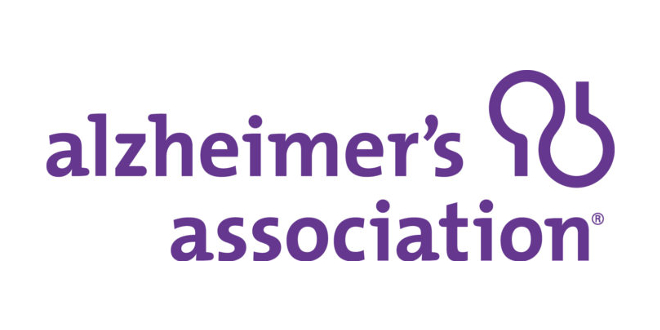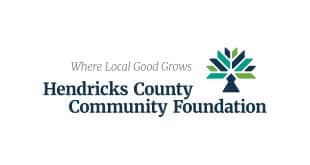Indianapolis, IN, March 5, 2019 – Findings from the Alzheimer’s Association 2019 Alzheimer’s Disease Facts and Figures report released today reveal a troubling disconnect between seniors and primary care physicians regarding who they believe is responsible for initiating cognitive assessments.
A survey conducted by the Association found that most seniors (93 percent) say they trust their doctor to recommend testing for thinking or memory problems if needed. Yet fewer than half of primary care physicians (47 percent) say it is their standard protocol to assess all patients age 65 and older for cognitive impairment. Only 1 in 4 seniors (26 percent) report having a physician ever ask them if they have any concerns about their cognitive function without seniors bringing it up first.
The survey also found that just 1 in 7 seniors (16 percent) say they receive regular cognitive assessments for memory or thinking issues during routine health checkups, compared to blood pressure (91 percent), cholesterol (83 percent), vaccinations (80 percent), hearing or vision (73 percent), diabetes (66 percent) and cancer (61 percent).
A brief cognitive assessment is a short evaluation for cognitive impairment performed by a health care provider that can take several forms — including asking a patient about cognitive concerns, directly observing a patient’s interactions, seeking input from family and friends or using short verbal or written tests that can be administered easily in the clinical setting. An evaluation of cognitive function is a required component of the Medicare Annual Wellness Visit, but findings from the report show that only 1 in 3 seniors are aware these visits should include this assessment.
“We provide support to individuals living with this disease and their caregivers every day, and we see firsthand how important an early diagnosis is,” said Natalie Sutton, executive director of the Alzheimer’s Association Greater Indiana Chapter. “It gives those living with the disease more time to participate in care planning decisions, make financial arrangements, participate in clinical trials and prioritize time with their loved ones. Cognitive assessments are a critical first step, and we can’t stress enough how important it is for these to be part of routine senior exams.”
While half of all seniors (51 percent) are aware of changes in their cognitive abilities — including changes in their ability to think, understand or remember — only 4 in 10 (40 percent) have ever discussed these concerns with a health care provider, and fewer than 1 in 7 seniors (15 percent) report having ever brought up cognitive concerns on their own.
Meanwhile, nearly all physicians said the decision to assess patients for cognitive impairment is driven, in part, by reports of symptoms or requests from patients, family members and caregivers. Physicians who choose not to assess cognition cite lack of symptoms or complaints from a patient (68 percent), lack of time during a patient visit (58 percent) and patient resistance (57 percent) as primary factors.
Most physicians say they welcome more information about assessments, including which tools to use (96 percent), guidance on next steps when cognitive problems are indicated (94 percent) and steps for implementing assessments efficiently into practice (91 percent). The Alzheimer’s Association Cognitive Assessment Toolkit provides guidance to physicians on conducting these assessments. It also offers achecklist to help seniors prepare for their visit and issues to discuss with their doctor.
Updated Alzheimer’s Statistics
The Alzheimer’s Association Facts and Figures report also provides a look at the latest statistics and information on Alzheimer’s prevalence, incidence, mortality and morbidity, costs of care and caregiving.
Prevalence, Incidence and Mortality
● An estimated 5.8 million Americans of all ages are living with Alzheimer’s dementia in 2019, including 200,000 under the age of 65. Approximately 110,000 are Indiana residents.
● By 2025 — just six years from now — the number of people age 65 and older with Alzheimer’s dementia is estimated to reach 7.1 million — an increase of 27 percent. Here in Indiana, the estimated number is 130,000 – a more than 18 percent increase.
● Alzheimer’s is the sixth-leading cause of death in the U.S. and the fifth-leading cause for those age 65 and older. In Indiana, 2,771 died with Alzheimer’s in 2017, the most recent figure available.
● While deaths from other leading causes such as heart disease and stroke have remained about the same or declined in recent years, deaths from Alzheimer’s disease increased 145 percent between 2000 and 2017.
Cost of Care
● Total national cost of caring for those with Alzheimer’s and other dementias is estimated at $290 billion (not including unpaid caregiving) in 2019, of which $195 billion is the cost to Medicare and Medicaid.
● In Indiana, the report estimated total Medicaid costs for Americans with dementia age 65 and older is $1.020 billion for 2019. In the next six years, that figure is expected to increase 19.5 percent to $1.219 billion.
Caregiving
● More than 16 million Americans provide unpaid care for people with Alzheimer’s or other dementias.
● In Indiana, there are 340,000 caregivers. In 2018, these caregivers provided 387 million total hours of unpaid care, valued at $4.89 billion.
Full text of the 2019 Alzheimer’s Disease Facts and Figures report, including the accompanying special report, “Alzheimer’s Detection in the Primary Care Setting: Connecting Patients with Physicians,”can be viewed here.
About 2019 Alzheimer’s Disease Facts and Figures
TheAlzheimer’s Association 2019 Alzheimer’s Disease Facts and Figures report is a comprehensive compilation of national statistics and information on Alzheimer’s disease and related dementias. The report conveys the impact of Alzheimer’s on individuals, families, government and the nation’s health care system. Since its 2007 inaugural release, the report has become the preeminent source covering the broad spectrum of Alzheimer’s issues. The Facts and Figures report is an official publication of the Alzheimer’s Association.
About the Alzheimer’s Association
The Alzheimer’s Association is the leading voluntary health organization in Alzheimer’s care, support and research. Our mission is to eliminate Alzheimer’s disease through the advancement of research; to provide and enhance care and support for all affected; and to reduce the risk of dementia through the promotion of brain health. Our vision is a world without Alzheimer’s®. Visit alz.org or call 800.272.3900.






